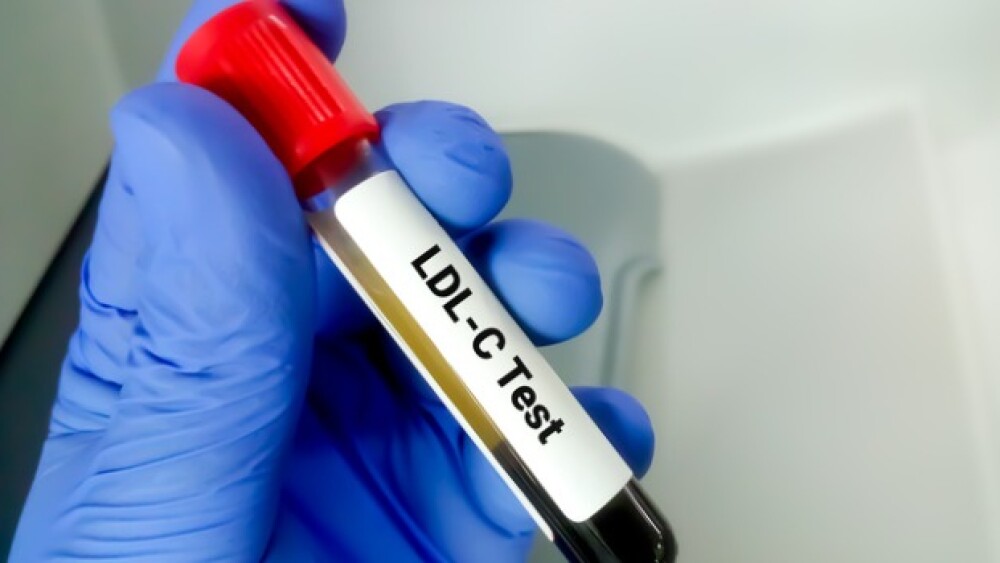Esperion bagged broader-than-expected FDA labels for its cholesterol-busting drugs Friday, allowing the biotech to target seven times as many people in the U.S. compared to the old labels.
Pictured: Gloved hand holding a specimen vial for an LDL-C test/iStock, Md Saiful Islam Khan
Esperion secured broader-than-expected FDA labels for its cholesterol-busting drugs Friday, clearing the biotech to target 60 million more patients in the U.S. Shares of the company rose 23% to $2.82 in premarket trading.
The previous labels for Nexletol (bempedoic acid) Tablets and Nexlizet (bempedoic acid and ezetimibe) limited use to the 10 million Americans with cardiovascular disease who are taking high-intensity statins but still need to lower their low-density lipoprotein cholesterol (LDL-C). Esperion filed to expand the label after generating data in an outcomes study.
Esperion CEO Sheldon Koenig predicted last month that the label expansion could add 20 million patients to the population eligible for treatment with Nexletol and Nexlizet. The prediction was based on the belief that the FDA could authorize the drugs for use in patients who have diabetes, but not cardiovascular disease, who are on a low-dose statin and need further reductions in LDL-C.
The labels given by the FDA support use in that population and another group of 40 million people. The third group covers people without cardiovascular disease who are unwilling to take statin therapy but need to lower their LDL-C. Collectively, the three groups cover 70 million patients, seven times as many people as Esperion was able to target under its old labels.
Esperion compared the labels favorably to the restrictions on the use of the rival drugs Zetia (ezetimibe), Repatha (evolocumab), Praluent (alirocumab) and Leqvio (inclisiran). Nexletol and Nexlizet are the only drugs approved for use in the primary and secondary prevention of cardiovascular disease. Koenig said in a statement that the labels position the drugs as the “non-statins of first choice within the cardiovascular risk reduction treatment paradigm.”
The next step is to leverage the expanded labels to drive sales. Esperion struggled to grow sales after winning approval in 2020, leading it to lay off 40% of its workforce in 2021. The expanded labels give the biotech a chance to relaunch the products in new patient populations and try to beat the $78.3 million in U.S. net product revenue it reported last year.
Esperion is planning a “bold new consumer campaign” to activate its target patients and support growth of the products. The company also grew its sales team in anticipation of the label expansion. Koenig said last month that the addition of 60 new territory managers had grown the team to 150 representatives.
Nick Paul Taylor is a freelance pharmaceutical and biotech writer based in London. He can be reached on LinkedIn.






